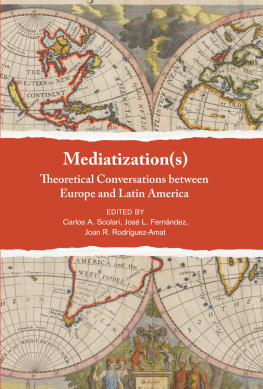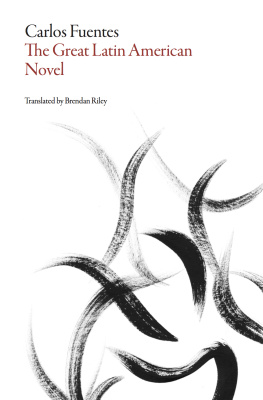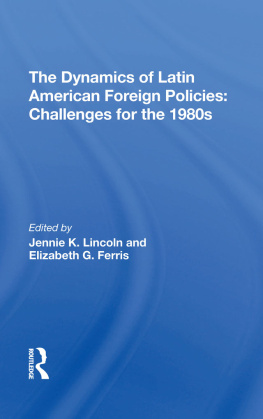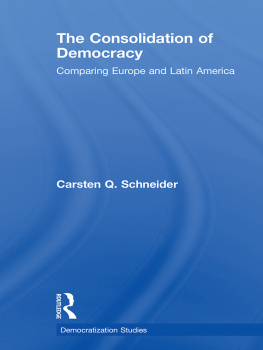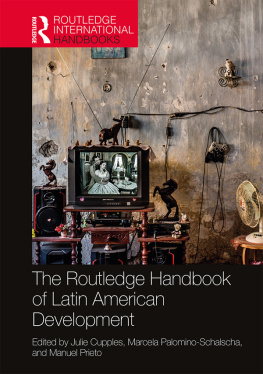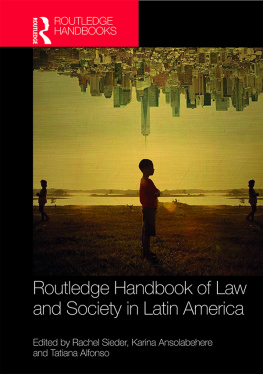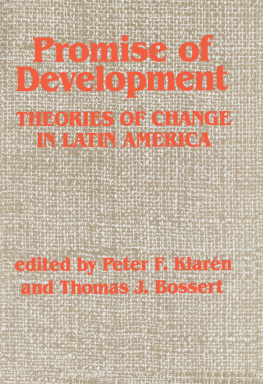Mediatization(s)
Theoretical Conversations
between Europe and
Latin America
Edited by Carlos A. Scolari
Jos L. Fernndez and
Joan R. Rodrguez-Amat
First published in the UK in 2021 by
Intellect, The Mill, Parnall Road, Fishponds, Bristol, BS16 3JG, UK
First published in the USA in 2021 by
Intellect, The University of Chicago Press, 1427 E. 60th Street,
Chicago, IL 60637, USA
Signed texts, their authors
Rest of the book, the editors
Copyright 2021 Intellect Ltd
All rights reserved. No part of this publication may be reproduced, stored in a retrieval system, or transmitted, in any form or by any means, electronic, mechanical, photocopying, recording, or
otherwise, without written permission.
A catalogue record for this book is available from the British Library.
Copy editor: MPS
Cover designer: Aleksandra Szumlas
Production manager: Laura Christopher
Typesetter: MPS
Print ISBN 978-1-78938-367-6
ePDF ISBN 978-1-78938-368-3
ePUB ISBN 978-1-78938-369-0
Printed and bound by TJ International
To find out about all our publications, please visit our website.
There you can subscribe to our e-newsletter, browse or download our current catalogue, and buy any titles that are in print.
www.intellectbooks.com
This is a peer-reviewed publication.
Contents
Joan R. Rodrguez-Amat, Carlos A. Scolari and Jos L. Fernndez
Nick Couldry and Andreas Hepp
Interview with Stig Hjarvard by Nicols Llano Linares (2016)
Maria Immacolata Vassallo de Lopes
Katharina Lobinger and Friedrich Krotz
Stefanie Averbeck-Lietz
Carlos A. Scolari
Interview with Eliseo Vern by Carlos A. Scolari (2006)
Interview with Friedrich Krotz by Joan R. Rodrguez-Amat (2018)
Lucrecia Escudero Chauvel
Andr Jansson
Gastn Cingolani
Jos Luis Fernndez
Sandra Valdettaro
Joan R. Rodrguez-Amat, Jos L. Fernndez and Carlos A. Scolari
Introduction
Resuming the Conversation
Joan R. Rodrguez-Amat
Carlos A. Scolari
Jos L. Fernndez
A fragmented disciplinary field: An early colourful map
This book simultaneously in English and Spanish contributes and updates the discussion around the concept of mediatization. The notion epitomizes both the disciplinary fragmentation explored by Waisbord in the territories of the communication research; and an uncomfortable conceptual dispersion provoked by the opportunity of a rather fashionable catch-all concept. As the book shows, while the fragmentation adopts the shape of a complex constellation of meaning that extends across processes involving: media, mediation, mass media, new media, social media, broadcasting, networks, media platforms and interfaces, among others, and also their societal contexts, the dispersion shows that the umbrella concept of mediatization is actually the product of a combination and maturity of different theoretical strands and approaches that have reached and grown the concept as a heuristic opportunity to explain a rather complex multifaceted phenomenon.
Under these circumstances, the concept of mediatization requires to be taken with care. This book has been planned as the start of a conversation between the works of consolidated authors writing about mediatization. Fifteen authors from ten countries have contributed to this exploration of the extension of the meanings of the concept with the double purpose to map the state of the art as an update to previous works, and as an effort to build theoretical bridges between the works from diverse cultural and scientific traditions.
The article by Scolari and Rodrguez-Amat published in a special issue of Communication Theory marked the starting point of this project. That first gaze became an initiative to ask the referred authors about their views on mediatization research in a broad sense. The question about the state of the art is relevant, particularly considering that it has been half a decade since the publication of Mediatization of Communication, a collective volume edited by Lundby that marked an inflexion point in the European- and English-spoken debates on mediatization; some of the authors present in that volume are now contributing too to this book, and presenting an update for the start of the question. However, this book does not continue that line of work. Instead, this book has invited the participation of several consolidated authors installed in what can be called the Latin American tradition around mediatization research, that is, authors that followed the path traced by Eliseo Vern (see Scolari and Rodrguez-Amat).
Research into mediatization processes started in Europe when the concept was introduced in the early twentieth century; only in the past two decades the notion has become one of the buzzwords in contemporary reflections and analytical tools about change in media and society. It is increasingly evident that media (old and new) play a key role in the construction of reality (Couldry and Hepp, The Mediated Construction of Reality). In Latin America the concept was developed by Eliseo Vern in the late 1970s and popularized in the 1980s (Vern, Construire lvnement); many scholars in Brazil, Uruguay and Argentina adopted his models and expanded the analysis of local phenomena using his perspective.
However, Latin American research is still largely absent from the international academia. Significantly, in the edited collection of more than thirty authors Mediatization of Communication (Lundby), Vern (Mediatization Theory) was the sole Latin American. In Couldry and Hepps special issue of Communication Theory on Conceptualizing Mediatization there was no participation of Latin American researchers. Furthermore, whereas some significant Latin American publications like deSignis (journal of the Latin American Federation of Semiotic Studies), L.I.S. Letra. Imagen. Sonido. Ciudad Mediatizada (Universidad de Buenos Aires, Argentina), Rizoma (Universidade de Santa Cruz do Sul, Brazil) and La Trama de la Comunicacin (Universidad Nacional de Rosario. Argentina) are effectively contributing to the diffusion of research into mediatization processes in Latin America, the near absence of European authors and production does not help the building of academic bridges, either. Symptomatically, the extensive work by Vern is little known among media researchers beyond the Spanish and French circuits even though his last published paper was in English (Vern, Mediatization Theory). However, it is true that some dialogue seems to have started up between the two research constellations. In a journal published by the Universidade de So Paulo (Brazil), MATRIZes, a 2014 special issue contained some initial exchanges between Latin American and European scholars: Hepp (The Communicative Figurations of Mediatized Worlds) (MATRIZes), Hjarvard (Mediatization), Vassallo de Lopes, and Vern (Mediatization Theory) were included, among others. It was the first single publication to include European and Latin American mediatization researchers. Later in June 2015, yet another publication from the Centre of Advanced Studies of the National University of Cordoba (Argentina) included a section with articles on Vern, with contributions by Sophie Fisher from the Ecole des Hautes Etudes en Sciences Sociales (France), and by Stefanie Averbeck-Lietz (Eliseo Vern ledo desde la perspectiva de los estudios en comunicacin alemanes) from the University of Bremen (Germany). In 2016, the Uruguayan journal InMediaciones de la Comunicacin published a special issue coordinated by Sandra Valdettaro with contributions by European (Francescutti, Los usos del documento en el periodismo digital) and Canadian scholars (Granata, La cultura como mediatizacin).

